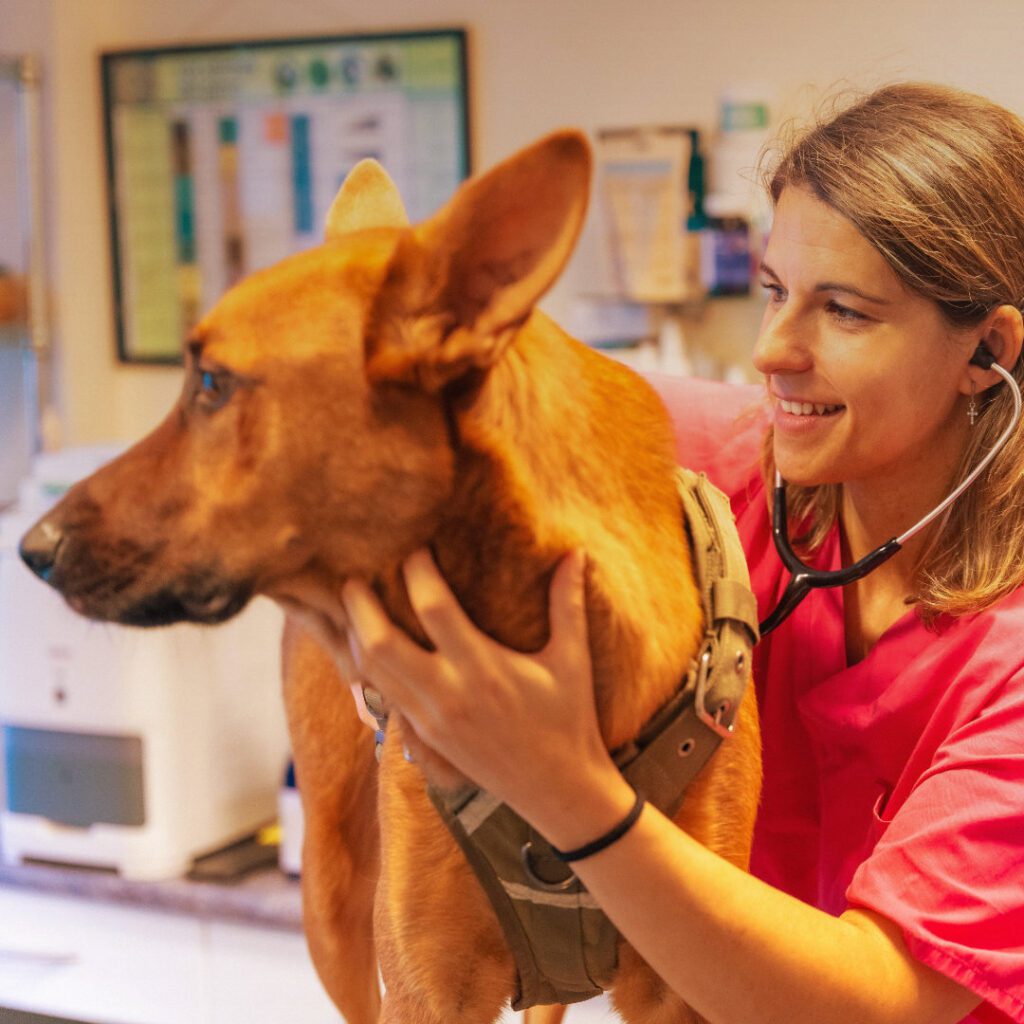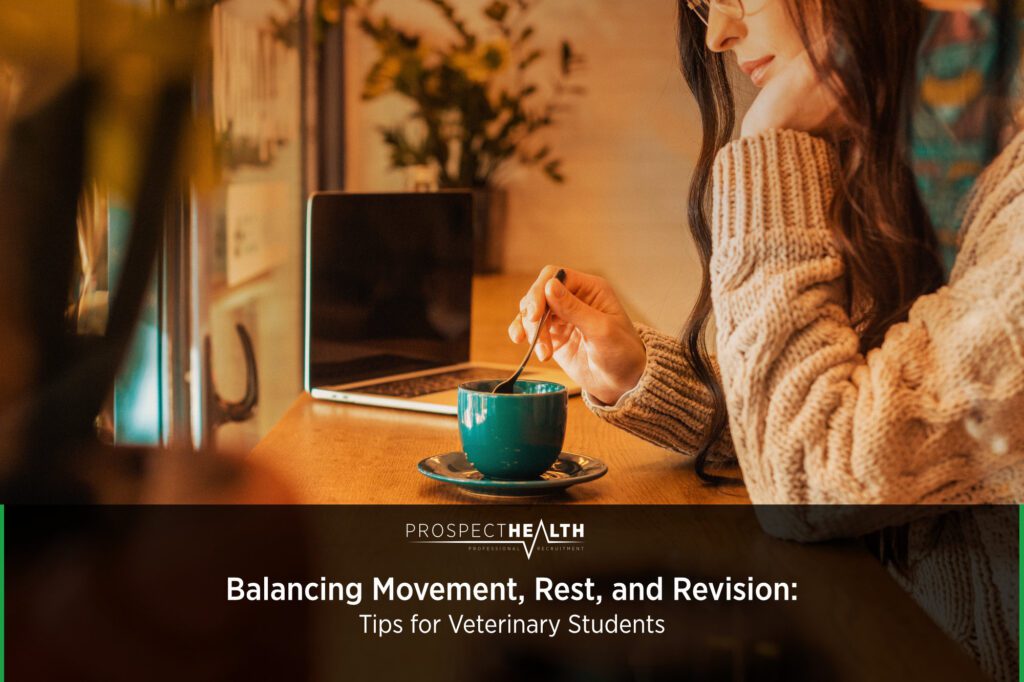October 8, 2025 | Vet Student | Veterinary
Veterinary CPD webinar
Balancing Movement, Rest, and Revision: Tips for Veterinary Students
With Holly from VETFIT
Veterinary studies can be demanding, and finding the right balance between revision, rest, and physical activity is essential for success, both academically and personally.
Holly from VETFIT shared practical insights for veterinary students on maintaining well-being during their studies.
If you would like to receive a copy of this webinar recording and be added to our mailing list for future webinars, please complete the form below.

Access our pre-recorded Veterinary Webinars
Why Movement Matters
Holly emphasised that movement doesn’t have to be intense exercise. Walking your dog, stretching, gardening, or swimming with friends are all valid forms of movement. The key is to find activities you enjoy—what she calls intuitive movement. This approach encourages students to move in ways that feel good, rather than adhering to societal pressures about workouts or aesthetics.
Incorporating movement into your day—even small actions like walking between classes—can improve mental clarity, reduce stress, and support physical health. It’s about celebrating how movement makes you feel, rather than trying to fit into a prescribed “fitness” model.
The Power of Rest for Veterinary Students
Rest is just as important as movement. Brief mental breaks can:
- Boost productivity and creativity
- Improve memory consolidation
- Prevent decision fatigue and procrastination
Holly highlighted methods such as the Pomodoro Technique, which alternates focused work with short breaks, as a simple way to maintain attention and motivation. She also explained the concept of presenteeism—being physically present but mentally unproductive—and how taking strategic breaks can prevent it.
Implementing Changes: Tiny Adjustments, Big Results
Holly introduced the concept of marginal gains, inspired by British cycling’s remarkable success. Small, consistent improvements—like adjusting your study environment, incorporating mini-breaks, or varying your movement routines—can accumulate into significant outcomes over time.
Practical Tips for Veterinary Students
- Movement: Identify enjoyable activities that get you moving. Don’t worry about intensity—consistency matters more than perfection.
- Rest: Schedule regular breaks, change your environment, and engage in activities that relax your mind.
- Mindset: Focus on growth and marginal gains. Small changes in habits, environment, and approach can dramatically improve overall performance.
If you would like advice on balancing your vet studies, our team are here to help and can put you in touch with Holly if you require help and support.
You can call us on 01423 813453 or email us at [email protected]
View all our Veterinary Jobs

Next Up: Veterinary CPD webinar – Understanding Heart Murmurs and Congestive Heart Failure in Dogs
Heart disease is one of the most common conditions veterinarians encounter in small animal practice. In her webinar, Dr Kate Boatright provides an insightful overview of heart murmurs and congestive heart failure (CHF) in dogs, focusing on practical approaches for general veterinary practitioners.

Talk to a specialist
AMY ROGAN
Specialist Recruitment Consultant
Hi, I’m Amy, a specialist recruitment consultant at Prospect Health. I recruit for Veterinary Surgeons in the Northern and Western areas of the UK, as well as Ireland.
What I love most about recruitment is building relationships with clients and candidates, and really getting to know what they’re looking for, and supporting them throughout the process to get there…
October 8, 2025 | Vet Student | Veterinary



